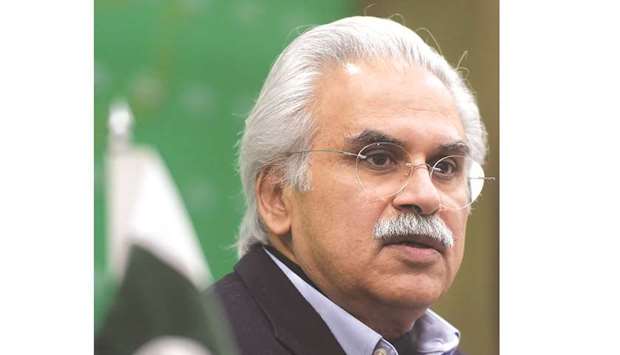Sindh has reported two more cases of the UK Covid-19 variant, taking the total number in the province to five.
The Covid-19 respiratory disease is caused by the coronavirus.
An official of the Sindh Health Department said yesterday that the new variant was detected in two men, both in their 20s, who are UK returnees and residents of Karachi.
The official said that both have no symptoms of the disease, and are stable and under home isolation.
On Tuesday, Sindh confirmed the first cases of the UK variant of coronavirus in Karachi among passengers who had returned from Britain.
In a statement, the department said that 12 samples of the UK returnees were taken for genotyping, out of which six persons were positive, and three showed the new variant of the virus.
The new strain of the coronavirus emerged earlier this month in Britain, following which more than 50 countries imposed travel restrictions on the country.
A certain strain of the virus is considered a variant when it has enough mutations to change a minor portion of its genetic code.
Federal Education Minister Shafqat Mahmood meanwhile announced that exams scheduled for March are being delayed till May and June.
The minister held a meeting with private school association representatives on reopening schools.
Mahmood said they cannot open educational institutions against the advice of the ministry of health.
He said that the reopening of schools will be decided by the National Command and Control Centre (NCOC).
“(We) hope infection rates go down so that we can open all educational institutions,” the minister said.
He said that exams scheduled for March are being delayed till May and June, while summer vacations will be shortened this year.
All educational institutions were closed in November last year as the country witnesses its second wave of the coronavirus.
Dr Zafar Mirza, the former adviser to the prime minister on national health services, has meanwhile stated that only 20% of Pakistan’s population may be given the Covid-19 vaccine, after the country receives its supply by the end of first quarter in 2021.
Speaking to the media at the Karachi Press Club, the former de facto health minister emphasised the need to strictly follow coronavirus standard operating procedures (SOPs), saying that vaccination is not an alternative to individual precautions.
During the second coronavirus wave, the general public has not been following the SOPs in the same manner as they did during the first wave.
Mirza said that the government has to take fool-proof measures to ensure that only deserving people get vaccinated.
According to him, the Covid-19 vaccines would not be available at the private sector at the initial phase.
Pakistan is accessing the Global Alliance for Procurement of Vaccines (GAVI).
At least eight pharmaceutical companies are in the process of manufacturing Covid-19 vaccines, and Pakistan government is in talks with some companies to buy them.
Mirza said that there is a lack of co-ordination in the government departments and institutions during the second coronavirus wave.
He said that there was an unwritten political consensus during the first wave, but this is missing in the second wave, as the opposition parties continued holding rallies despite government’s ban.
Mirza conceded that the government parties also held rallies in the lead-up to the recent Gilgit-Baltistan elections.
He is optimistic that the situation is becoming better and that the second wave is also receding.
Mirza is also an adviser to the World Health Organisation (WHO) on universal public health in Pakistan.

Dr Mirza: optimistic that the coronavirus situation is becoming better.
